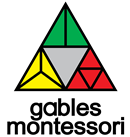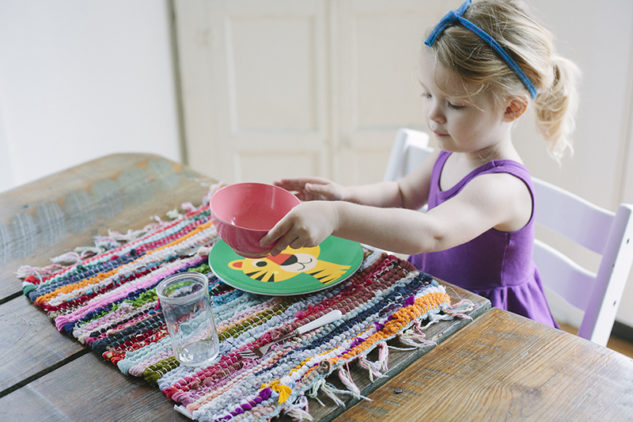If parents choose the Montessori philosophy as the adequate for educating their children, it would be recommended that the same principles the child learns at school be reinforced at home. You can adapt the principles to work for your family. Thus the child can perceive the consistency of what he sees and hears in his classroom with what he also learns at home.
The environment is very important for Maria Montessori, it must be a scenario to develop the independence and freedom of the child. So the best is the use of scaled furniture and materials. It is necessary that spaces and using objects be easily accessible to children, a comfortable room for the little ones must have low shelves and small tables and chairs. Of course it depends on the space you have at home. In the case of tables and chairs, buy the lighter ones so your child can move them into different rooms, promoting his independence. Tables according to their height allow kids to make their own snacks, to have their own space of school work to use it at any time or get a space of creative work always available. Also you can have trays at home that can be used at workstations, where children place materials and projects (and can be displaced or carried from one place to another), this allows them the opportunity to repeat the activities as often as needed without occupying other spaces of the entire family. Also in the practical life skills area of Montessori there are tools that may be used on a daily basis, for example, bowls, scoops and spoons. So, you can involve kids in activities in the kitchen that can help them to develop their manual skills.
About the connection between child and nature through the care of plants and animals, Montessori explains “it is necessary to have the child exposed to the vivifying forces of nature, it is also necessary for his psychical life to place the soul of the child in contact with creation, in order that he may lay up for himself treasure from the directly educating forces of living nature. The method for arriving at this end is to set the child at agricultural labour, guiding him to the cultivation of plants and animals, and so to the intelligent contemplation of nature”, so if you have even a small garden, let your children be in contact with the ground, seeds, water and plants. If you live in a small apartment, have some plants that your children must take care of, so “when he knows that the life of the plants that have been sown depends upon his care in watering them, and that of the animals, upon his diligence in feeding them, without which the little plant dries up and the animals suffer hunger, the child becomes vigilant, as one who is beginning to feel a mission in life”, as Montessori explains at The Method. Another useful idea is to create a Nature Table or Tray, that is a variety of natural materials that kid can freely touch and arrange as fruits, flowers (artificial or real), dried seeds, leaves, shells, petals, cards of plants and animals and other learning materials.
Following the Montessori principles at home means you must be aware of them all the time. About correcting the mistakes, most Montessori materials are either self-correcting or include a control of error, so if your kid didn’t grasp any concept relax and let it go for the day. Tasks at home are part of his learning but must not include any punishment, his motivation to get things correctly comes from an internal drive to learn so let him to recognize the mistake, you just should be an encouraging guide.
Stressing courtesy. Montessori classrooms are centers of creation, they are the ideal environment to educate children. So it must be the house of the kid. Grace and courtesy must be the main guests of both, school and home. The child learns by the example, so a powerful mean may be the use of role playing scenarios where he acts with good manners as his parents do. Simple activities as pushing in a chair as quietly possible, talk with others in a moderate tone of voice, organize toys and working materials, are ways to guide children. As parents we can create new games to help my children become sensitive to volume, also we can teach them to be gentle handling materials in the kitchen or taking care of plants and animals in the house. It is important to remember that every child has unique needs and interests so you must observe your child and discover his special kind of approximation to learning and also you should provide him as many opportunities as possible to get the lessons from the environment.
Other of the beliefs of Maria Montessori was the power of the sense of control over the life as a path to improve learning and well-being. That is completely connected with the capacity of being able to choose what a person wants and it is not different in the case of children. For that, help your child to make a list of activities for the day and let him create his own schedule, or offer him a variety of (healthy) snacks to choose from the refrigerator. Also you can practice this letting him choose the books to read or the sheets he wants for his bed.







No Comments Yet